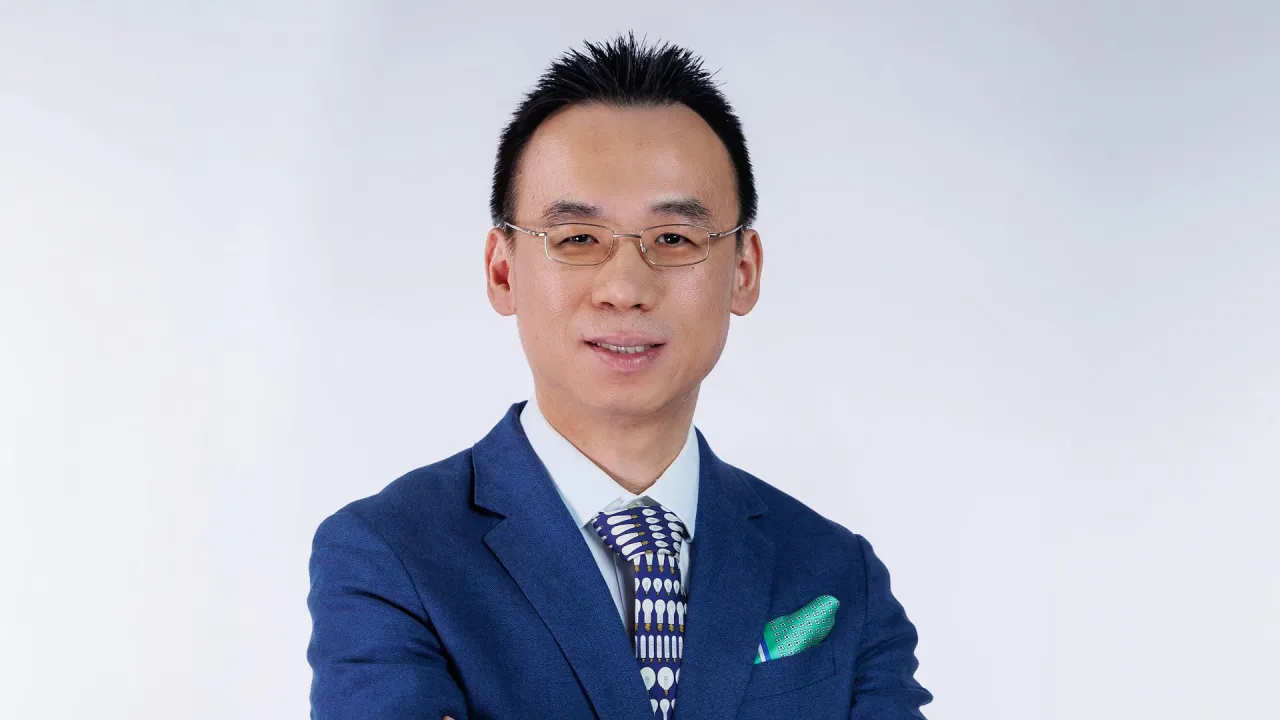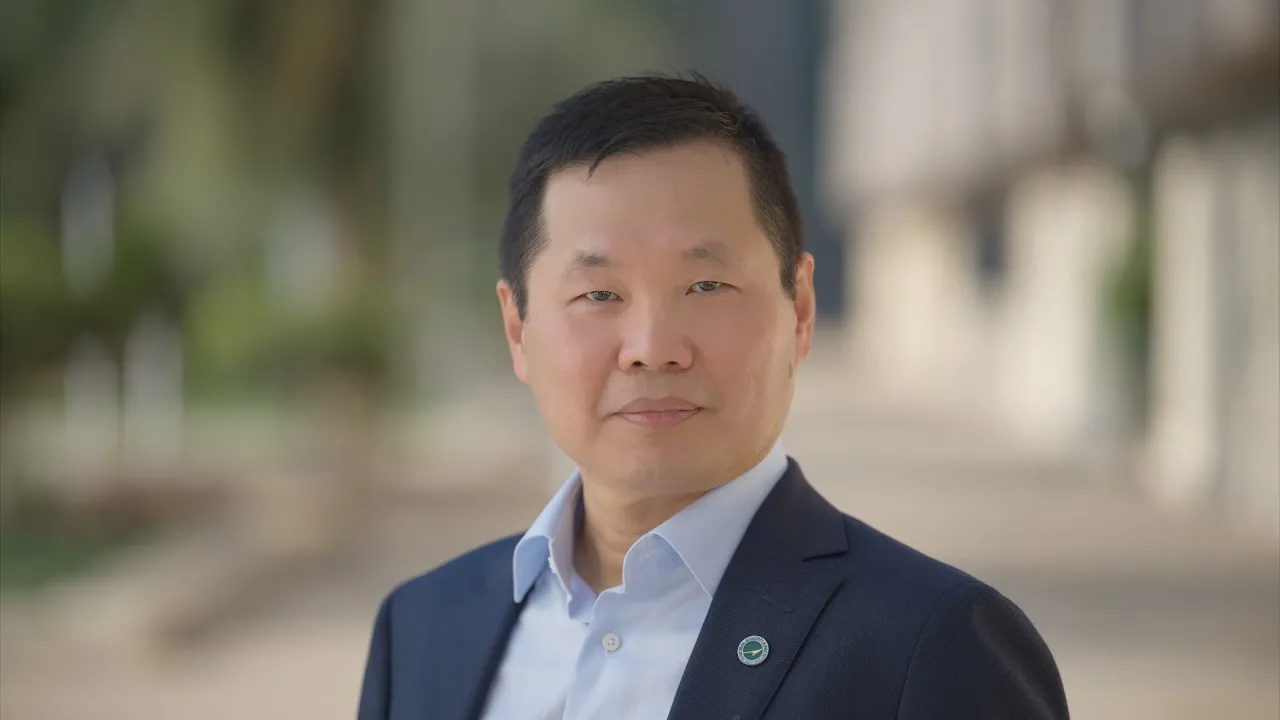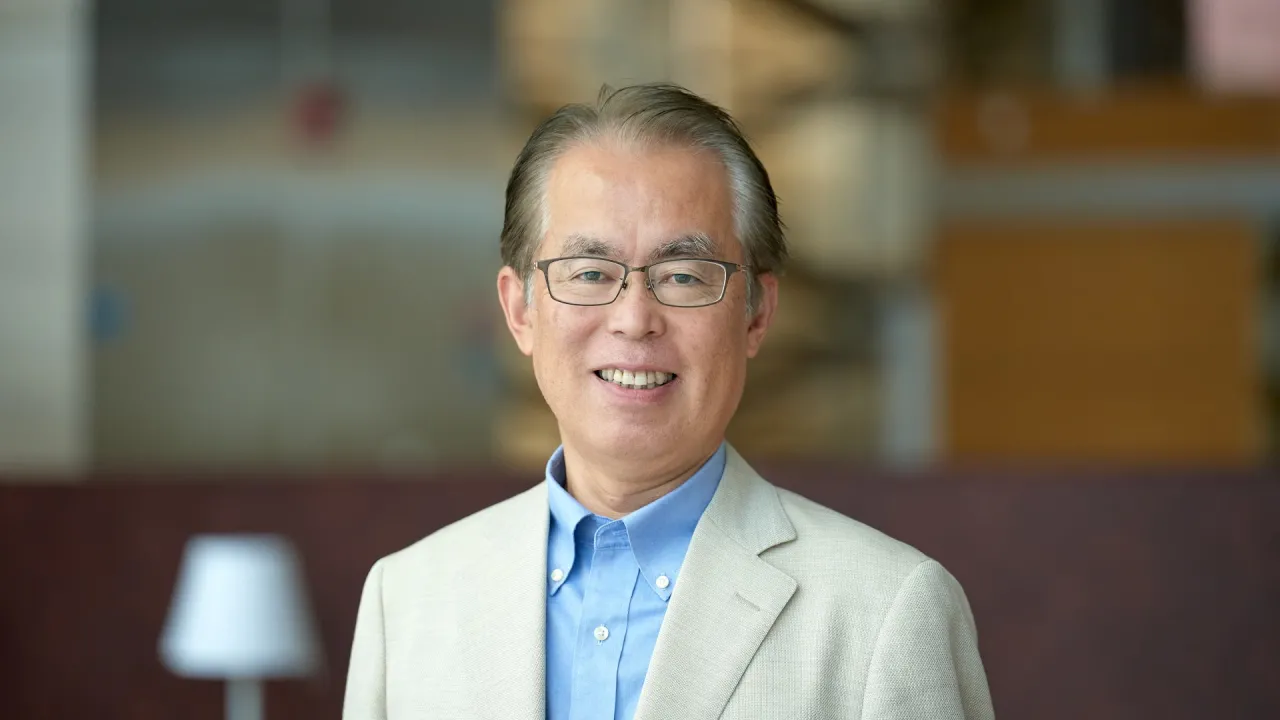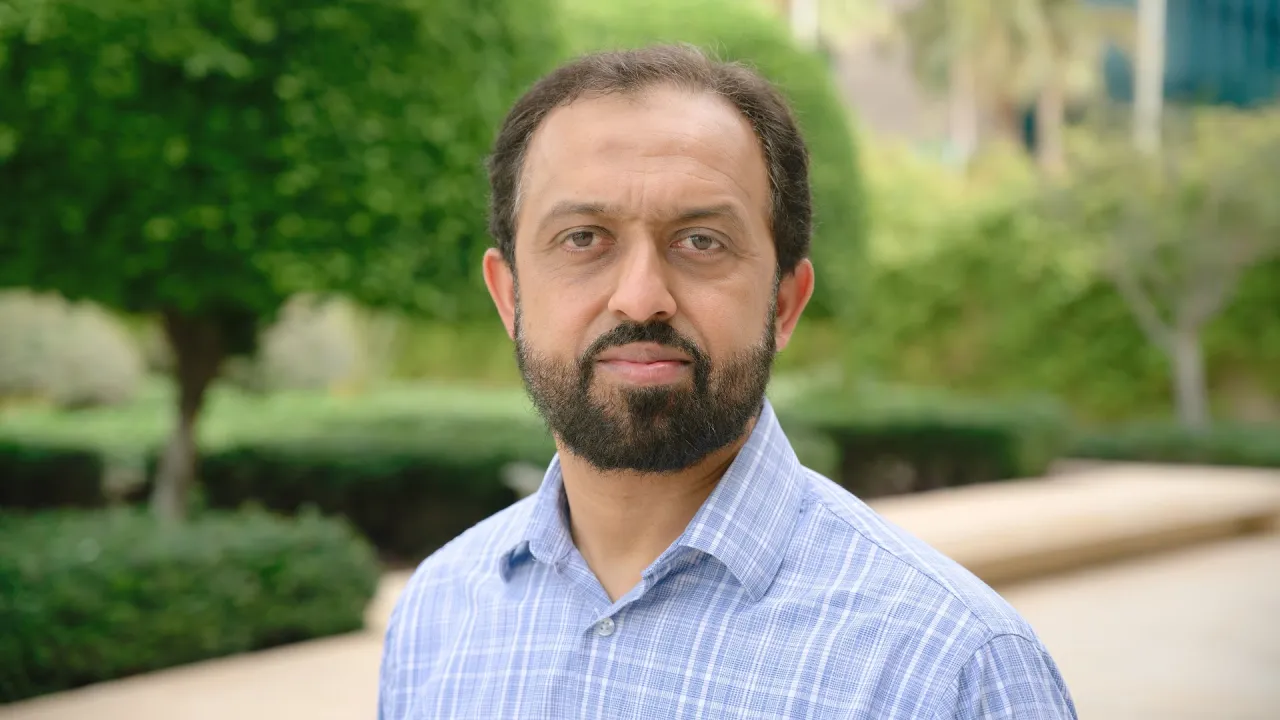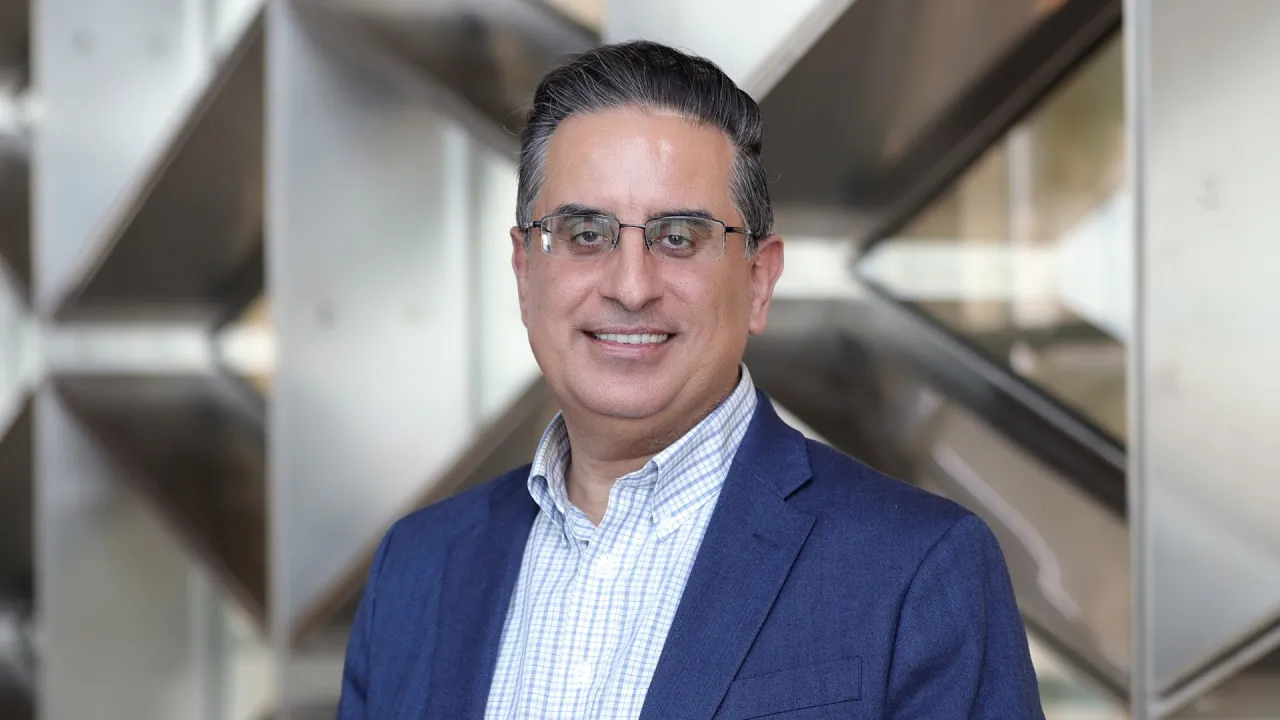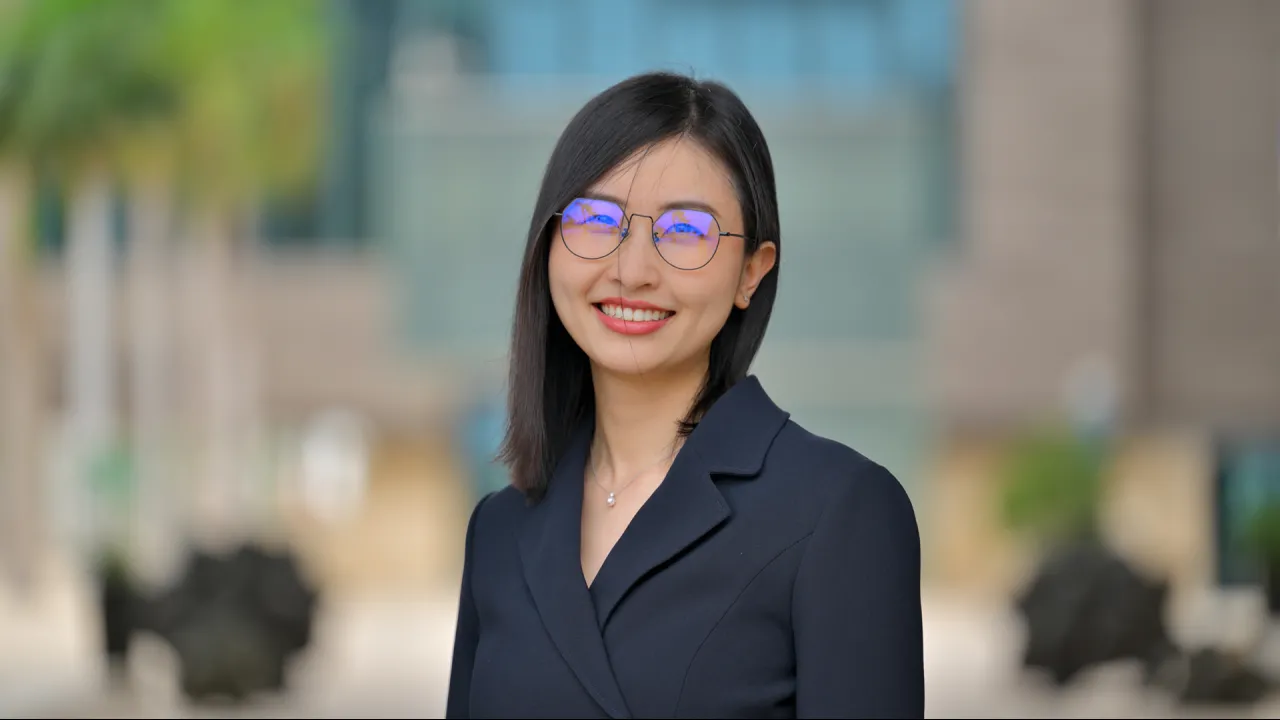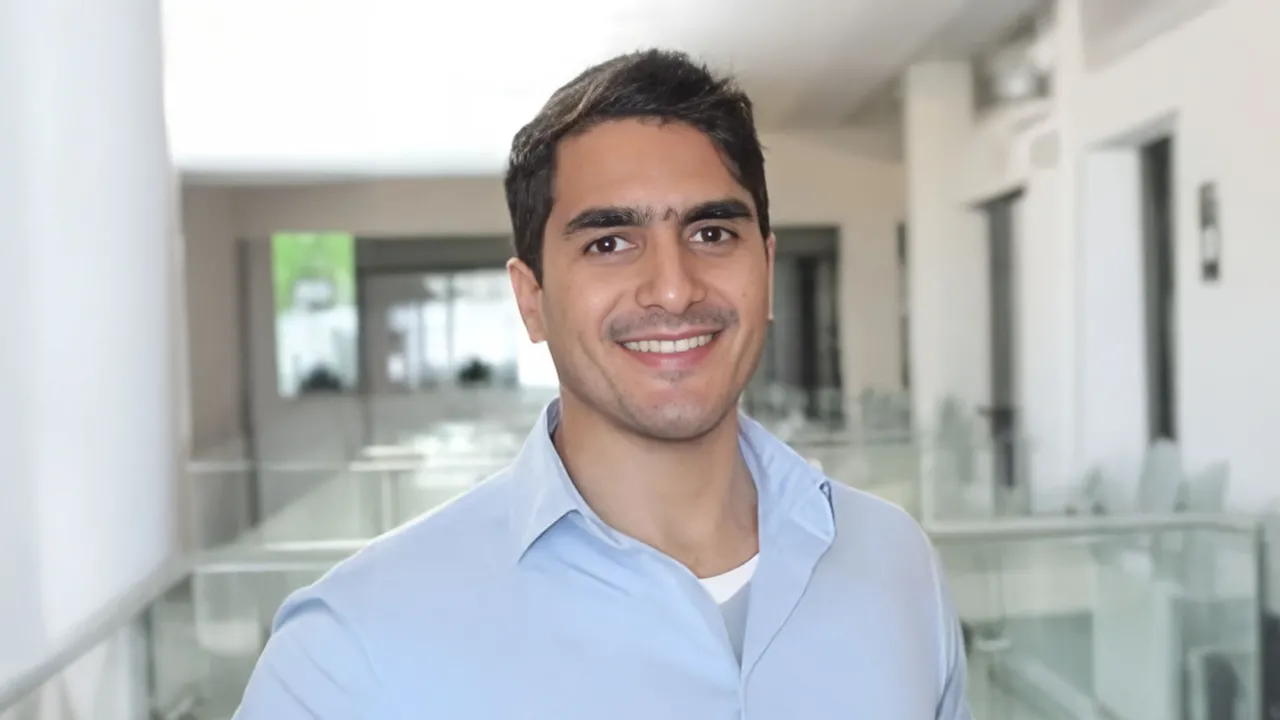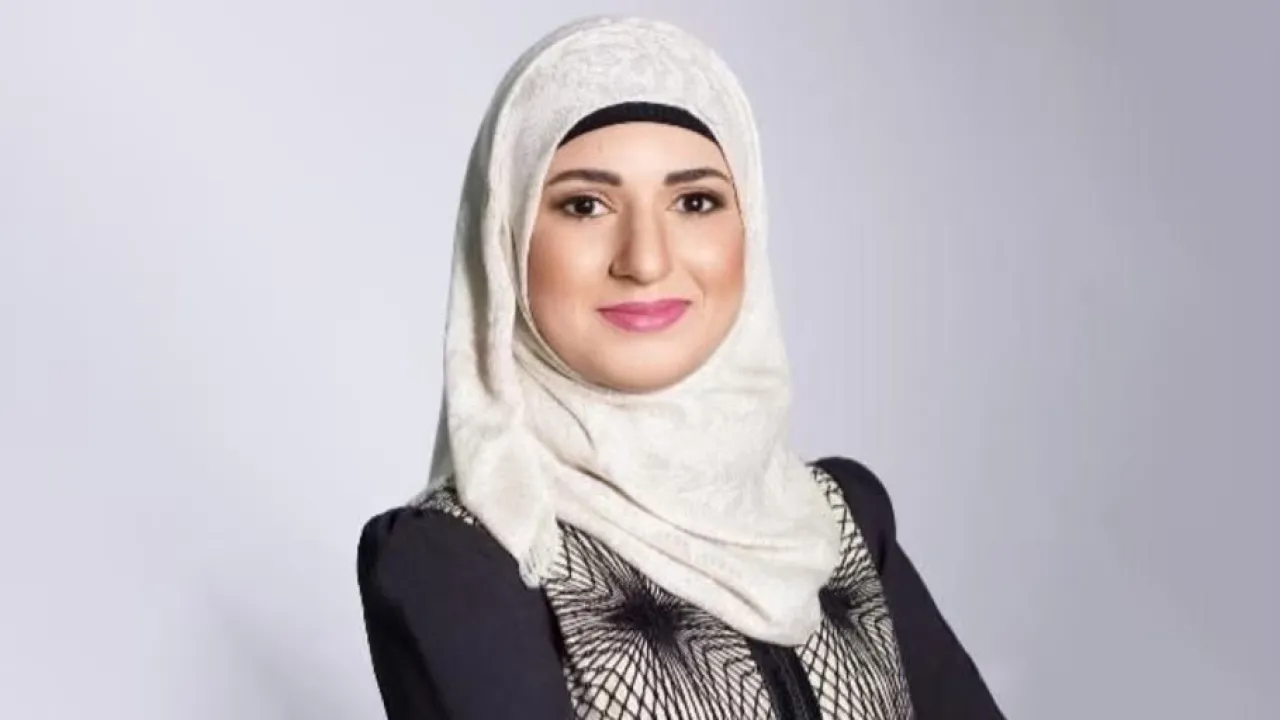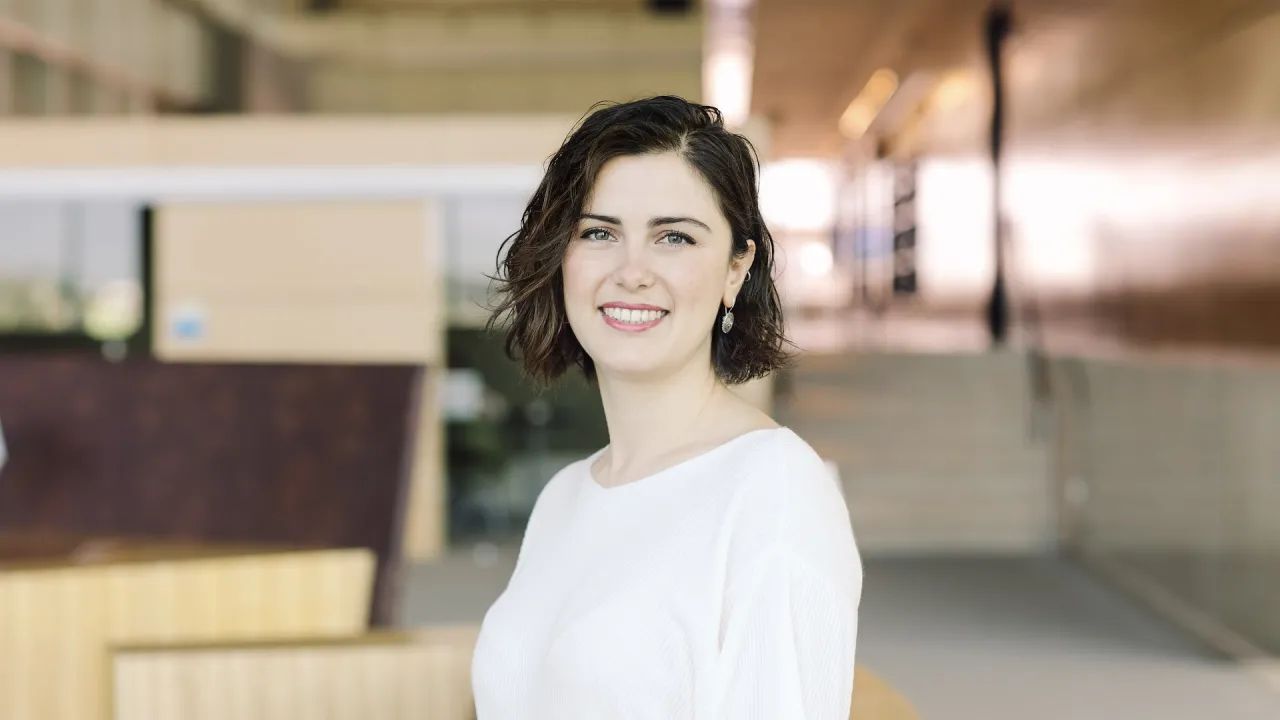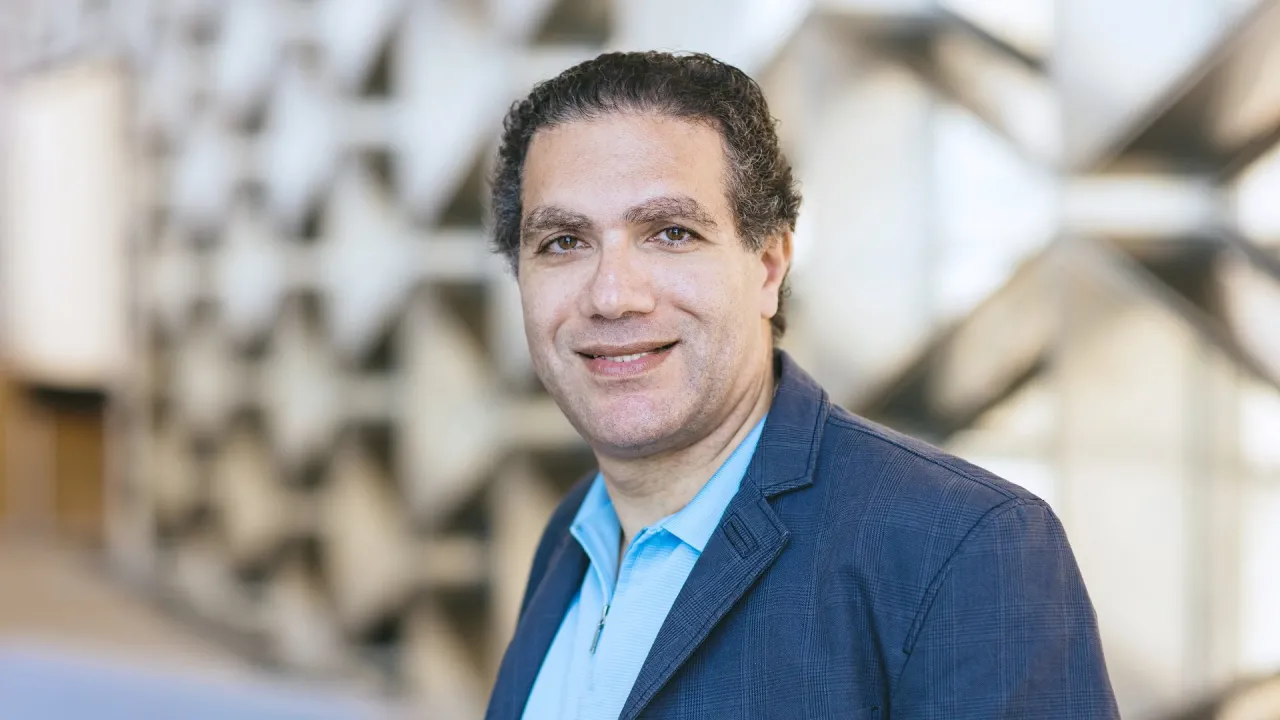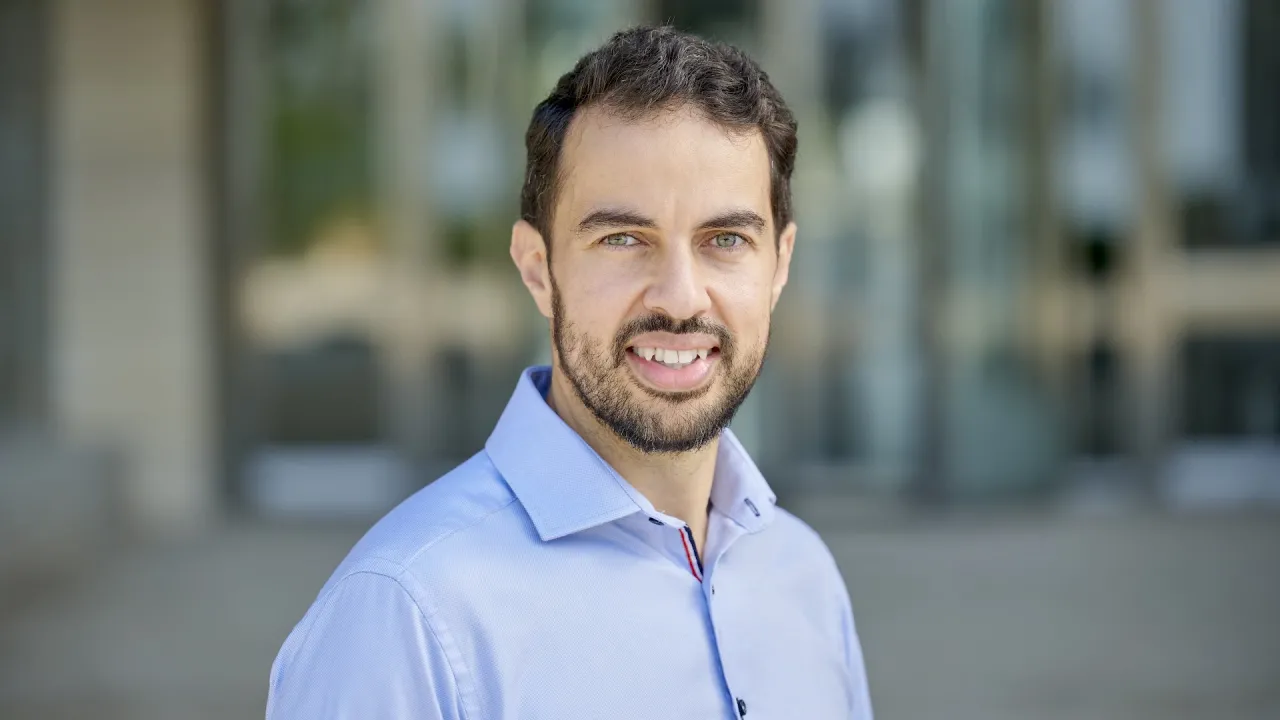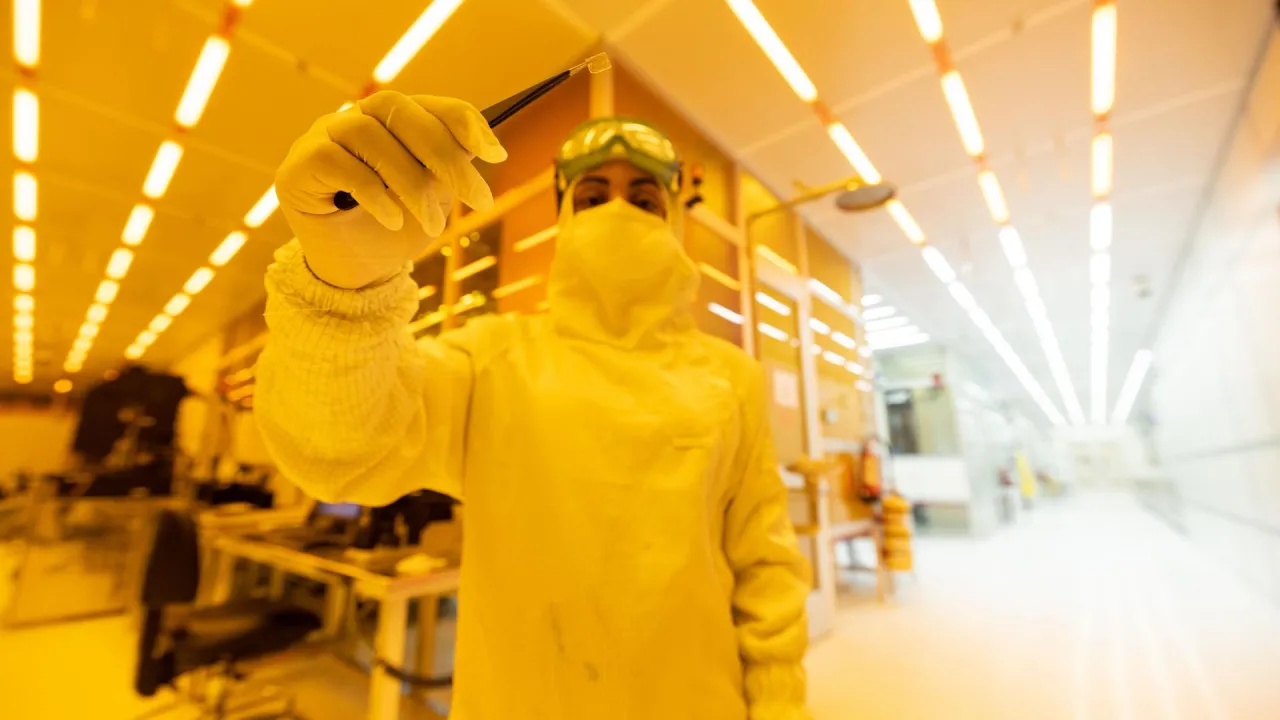
Advanced Semiconductors
The advanced semiconductor research is focused on innovating the design and fabrication of (ultra)wide bandgap semiconductor devices based on gallium nitride (GaN), aluminum nitride (AlN), and gallium oxide (Ga2O3).
Research Focus
Our work encompasses a variety of device types, including power electronics, radio frequency (RF) electronics, sensors, Memory N-channel Metal Oxide Semiconductor (NMOS) and Complementary Metal Oxide Semiconductor (CMOS) Integrated Circuits.
We are also exploring the monolithic integration of these devices, a promising approach for achieving enhanced performance and efficiency.
Related People
Biography
Professor Xiaohang Li has extensive research experience in III-nitride and III-oxide (ultra)wide bandgap semiconductors. Prior to KAUST, Li received his Bachelor degree in Applied Physics from Huazhong University of Science and Technology, China, his Master's degree in Electrical Engineering from Lehigh University, U.S., and his Ph.D. degree in Electrical Engineering from Georgia Institute of Technology, U.S.
Since joining KAUST, Li has advised more than 100 students, and led his Advanced Semiconductor Laboratory (ASL) in making many important and pioneering contributions to semiconductor research. Prof Li and his ASL team focus on the fundamental and applied research of ultrawide and wide-bandgap semiconductor materials, devices, physics and hardware. The ASL team aims to leverage these technologies to revolutionize the energy, communications, and health industries crucial for the sustainability of human society.
Research Interests
Professor Li has extensive research experience in III-nitride and III-oxide (ultra)wide bandgap semiconductors. He focuses his interdisciplinary research activities on investigating the growth, simulation, fabrication and characterization of III-nitride structures for next-generation devices. Devices of particular interest include LEDs, lasers, transistors and next-generation CMOS ICs.
Education
Boon Ooi
- Al-Khawarzmi Distinguished Professor, Electrical and Computer Engineering
Biography
Boon S. Ooi (FNAI, FIEEE, FAPS, FOSA, FSPIE, FInstP) is an Al-Khawarzmi Distinguished Professor of Electrical and Computer Engineering at KAUST. He previously held faculty positions at Nanyang Technological University (Singapore) from 1996 to 2000 and Lehigh University (Pennsylvania, USA) from 2003 to 2009. From 2012 to 2020, he served as the Director of the KACST-Technology Innovation Center at KAUST.
Professor Ooi has trained more than 40 Ph.D. students and 17 postdoctoral fellows, many of whom have secured prestigious fellowships and awards from organizations like the UK Royal Academy, Marie Curie, Humboldt, IEEE, OSA, and SPIE. He holds 45 issued US patents and 21 international patents, many of which have been licensed to leading optics and photonics companies, driving commercialization success.
He has received numerous accolades, including the 2024 Sang Soo Lee Award (Optica/OSA and OSK), the 2023 Khalifa International Award (UAE), and multiple paper awards. Professor Ooi is currently serving as the Editor-in-Chief of IEEE Photonics Technology Letters and has previously held editorial roles with Optics Express and IEEE Photonics Journal.
Beyond his academic achievements, Professor Ooi is actively engaged in professional service, having served on key committees such as the IEEE Fellow Committee and the SPIE Fellow Selection Committee. He chaired the IEEE Photonics Society Distinguished Lecture Selection Committee in 2024.
Research Interests
Professor Ooi’s research focuses on high-speed optoelectronics, optical wireless communications, and distributed fiber optic sensors.
Education
Biography
Kazuhiro Ohkawa is a professor of Electrical and Computer Engineering (ECE) Program and the principal investigator of the Energy Conversion Devices and Materials (ECO Devices) Laboratory at KAUST.
Before joining the University, he was a senior research member at Panasonic Ltd, a professor of Physics at the University of Bremen, Germany and a professor of Applied Physics at Tokyo University of Science, Japan.
Professor Ohkawa invented nitrogen-plasma doping for ZnSe and their blue-green lasers and LEDs. The nitrogen-plasma source is now a standard nitride molecular beam epitaxy (MBE) technology. He later became involved in the metalorganic vapor-phase epitaxy (MOVPE) growth of GaN, where he developed world-record deep-red indium gallium nitride (InGaN) LEDs based on the original MOVPE technique. His nitride MOVPE simulations have contributed to industries worldwide that produce InGaN LEDs, lasers and AlGaN electronics. Additionally, he invented nitride photocatalysts, which are instrumental in solar hydrogen production and artificial photosynthesis.
He has received numerous honors and recognitions for his contributions to optoelectronics, including being named an honorary professor (lifelong) at the University of Bremen, Germany; visiting professor at Mie University, Japan; guest professor at Xiamen University, China; and visiting professor (lifelong) at Tianjin University of Technology and Education, China. He is a fellow of the Japan Society of Applied Physics. Approximately 20 companies have sought his consulting expertise in these research areas.
His research has led to over 200 scientific publications, 28 granted US and Japanese patents and more than 70 invited talks.
Research Interests
Professor Ohkawa’s research at KAUST focuses on applying energy-conversion phenomena towards a more sustainable future. The highly regarded researcher’s contributions to applied physics and optoelectronics have resulted in his technologies being adopted by many companies and institutions worldwide.
Three notable contributions include the first doping technologies for II-VI compounds to realize n- and p-types. Notably, the nitrogen plasma source for the p-type has become the standard technology for molecular-beam epitaxy growth of nitride semiconductors. The second is MOCVD technology for nitride semiconductors. The technology has developed InGaN-based RGB full-color LEDs and made it possible to study MOCVD reactors scientifically. The third is the invention of a nitride photocatalyst for water splitting and artificial photosynthesis.
Ohkawa is also the principal investigator of the ECO Devices Laboratory. The lab’s research topics are not only monolithic RGB micro-LEDs but also applications of those micro-LEDs for high-speed visible light communications (so-called "Li-Fi") and vertical-cavity surface-emitting lasers (VCSELs). RGB VCSELs will enable ultimate laser-based head-mounted displays.
Education
Biography
Atif Shamim received his M.S. and Ph.D. degrees in electrical engineering from Carleton University, Canada, in 2004 and 2009, respectively. He was an NSERC Alexander Graham Bell Graduate Scholar at Carleton University from 2007 to 2009 and an NSERC Postdoctoral Fellow from 2009 to 2010 at the Royal Military College Canada and KAUST.
In 2006, he joined the VTT Micro-Modules Research Center (Oulu, Finland) as an invited researcher. In August 2010, he joined the Electrical and Computer Engineering (ECE) Program at KAUST, where he is currently a full professor, chair of the ECE Program, and principal investigator of the IMPACTS Lab.
His research work has earned numerous awards, including Best Paper Awards at IEEE ICMAC 2021, IEEE IMS 2016, IEEE MECAP 2016, and IEEE EuWiT 2008. He also received first prize in the IEEE IMS 2019 3MT Competition, the IEEE AP-S Design Competition 2022, and second prize in the IEEE IMS Design Competition 2024. Additionally, he was recognized with finalist or honorable mention awards in several prestigious competitions, including the IEEE AP-S Design Competition 2020 and the R.W.P. King Prize for journal papers in IEEE TAP 2017 and 2020. He has been selected as a Distinguished Lecturer for IEEE AP-S (2022–2024).
In addition to his research accolades, Professor Shamim’s work has been recognized for its broader impact across innovation, industry and entrepreneurship. He received the King’s Prize for the Best Innovation of the Year (2018) for his work on sensors for the oil industry. In 2008, he was honored with the Ottawa Centre of Research Innovation (OCRI) Researcher of the Year Award in Canada. His innovative Wireless Dosimeter earned the ITAC SMC Award at the Canadian Microelectronics Corporation TEXPO in 2007. He has also won several business-related honors, including first prize in Canada’s National Business Plan Competition and the OCRI Entrepreneur of the Year Award in 2010.
Professor Shamim has been actively involved in contributing to the IEEE community through various technical, editorial, and leadership roles. He is a Fellow of IEEE and founded the first IEEE AP/MTT chapter in Saudi Arabia (2013). He served on the editorial board of IEEE Transactions on Antennas and Propagation (2013–2019), as a Guest Editor for an IEEE AWPL Special Issue (2019), and as an Associate Editor for the IEEE Journal of Electromagnetics, RF and Microwaves in Medicine and Biology (2020–2024). He has also participated in several IEEE Technical Committees, including those on Antenna Measurements (AP-S), Microwave Controls (MTT-S 13), and Additive Manufacturing (CRFID).
He currently chairs the IEEE AP-S Technical Committee on Wireless Communication and serves as Vice Chair of the IEEE AP-S MGA Committee.
Research Interests
Professor Shamim's research focuses on innovative antenna designs and their integration strategies with circuits and sensors for flexible and wearable wireless sensing systems through a combination of CMOS and additive manufacturing technologies. Shamim is particularly interested in developing wearable wireless sensor systems to measure physiological parameters in real time.
Specific research interests include:
- Antenna-on-Chip (AoC) design, integration and efficiency enhancement strategies
- Reconfigurable Intelligent Surfaces (RIS)
Additive manufacturing (Inkjet, Screen, and 3D printing) - Wearable and disposable wireless sensors realized through printing technologies
- Mechanically flexible RF electronics and sensing systems
- Reconfigurable microwave components (magnetically controlled)
- Phase Change Materials (PCM) for low cost RF and mm-Wave switching applications
- Terahertz plasmonics antennas and their characterization techniques
Education
Biography
Professor Husam Alshareef is a leader in materials science, with pioneering expertise in developing nanoscale materials for energy and electronics applications. He joined KAUST in 2009 as a founding member and currently serves as chair of the KAUST Center of Excellence for Renewable Energy and Storage Technologies (CREST) and principal investigator of the Functional Nanomaterials & Devices Laboratory.
Alshareef began his career as a postdoctoral researcher at Sandia National Laboratories in New Mexico, and subsequently held positions at Micron Technology and Texas Instruments, where he developed new materials and processes for integrated circuit fabrication. With more than 620 journal publications and 70,000 citations, he is recognized by the Web of Science and Clarivate Analytics as a highly cited researcher in materials science, placing him in the top 1% of researchers worldwide for research output.
Professor Alshareef is a fellow of multiple prestigious organizations, including the Materials Research Society, American Physical Society, Institute of Electrical and Electronics Engineers, U.S. National Academy of Inventors, UK Institute of Physics, Royal Society of Chemistry and Institute of Materials, Minerals and Mining. He holds 80 issued patents, has received numerous awards, and is frequently invited to speak at conferences worldwide — accomplishments that reflect his extensive contributions to materials science.
Research Interests
Professor Alshareef’s research focuses on developing nanoscale materials for batteries and electronics, with an increasing emphasis on translational applications. His recent work centers on creating new battery chemistries for harsh environments that offer higher energy density, lower cost and improved safety.
He is also leveraging local materials and minerals to develop next-generation batteries, including Na-ion, solid-state and K-ion technologies, to help secure the Kingdom’s battery supply chain. In addition, he is developing new sensors and X-ray imaging technologies for battery forensics and anti-tampering measures. In electronics, he works on MXenes and other 2D materials for electronic devices.
Education
Biography
Dr. Yating Wan is an assistant professor of electrical engineering and the principal investigator of the Integrated Photonics Laboratory at KAUST.
Dr. Wan specializes in silicon photonics with a focus on integrating on-chip light sources for data communication, optical computing, OPA-based lidar, and quantum information processing.
Before joining KAUST, Dr. Wan worked in Professor John Bowers’ group at the University of California, Santa Barbara (2017–2022), where she led Intel’s project on heterogeneously integrated QD lasers on silicon.
At KAUST, she leads a dynamic team of 20 members, including seven postdoctoral researchers, 11 Ph.D. students, and two master’s students.
Dr. Wan has authored over 100 peer-reviewed publications, including 38 first-author papers (29 journals, 9 proceedings, and 10 journal covers) and 26 corresponding-author publications (11 journals, 15 conferences).
For her pioneering work in on-chip laser integration on silicon, Dr. Wan has received numerous major awards, including the 2021 CLEO Tingye Li Innovation Prize (one awardee worldwide); the 2022 Rising Stars of Light recognition by Light: Science & Applications (three awardees worldwide); inclusion in MIT Technology Review’s 2023 “35 Innovators Under 35 for China”; the 2025 Sony Women in Technology Award with Nature ($250,000 prize, three awardees worldwide); and the 2025 IEEE Photonics Society Young Investigator Award (one awardee worldwide).
Outside her immediate research focus, Dr. Wan has been an active contributor to the broader academic community. She serves as manager and column editor for the LSA Editorial Office in Thuwal, as associate editor for Applied Optics and the IEEE Journal of Quantum Electronics (JQE), and as guest associate editor for the IEEE Journal of Selected Topics in Quantum Electronics (JSTQE).
Dr. Wan is also a technical program committee member for the International Photonics Conference (IPC) and the Conference on Lasers and Electro-Optics (CLEO) and a member of the IEEE Photonics Society Conference Council. She has reviewed more than 100 papers for leading journals across IEEE, Optica and the Nature Publishing Group.
Research Interests
Dr. Yating Wan’s research focuses on advancing integrated silicon photonics through the development of efficient, scalable, and CMOS-compatible on-chip light sources based on quantum dot (QD) lasers. Her work tackles one of the central challenges in photonic integration—realizing reliable, energy-efficient light generation directly on silicon and emerging material platforms such as silicon carbide and thin-film lithium niobate. By leveraging cutting-edge heterogeneous integration techniques, her group has demonstrated QD lasers with record-low threshold currents, ultranarrow linewidths, and remarkable temperature and feedback stability.
These high-performance QD light sources unlock the full potential of silicon photonics as a universal hardware platform that unites communication, computation, and sensing. Building on this foundation, Dr. Wan’s research explores transformative applications, including photonic computing units (PCUs) for AI acceleration, ultra-efficient optical interconnects for data centers and high-performance computing, silicon photonics-integrated LiDAR for autonomous systems, and chaos-based photonic hardware for next-generation cybersecurity.
Through the seamless integration of materials science, device engineering, and system-level photonic architectures, Dr. Wan’s work bridges the gap between laboratory breakthroughs and industrial-scale deployment. Her vision is to enable an intelligent, energy-sustainable future powered by next-generation AI hardware, high-speed interconnects, and secure optical technologies built on fully integrated QD-on-silicon photonic platforms.
Education
Biography
Osman M. Bakr is a professor in the Material Science and Applied Physics program at KAUST, where he has been a faculty member since 2010. Bakr is internationally recognized for significant contributions to hybrid organic–inorganic materials, particularly perovskites and quantum dots and their applications in solar cells and optoelectronics. At KAUST, he leads the Functional Nanomaterials Lab, which investigates the physics and chemistry of advanced hybrid materials.
Bakr earned his B.Sc. in materials science and engineering from MIT, U.S., and his Ph.D. in applied physics from Harvard University, U.S. He has received numerous honors throughout his career, including the Kuwait Prize and the Kroll Medal & Prize from the Institute of Materials, Minerals and Mining. He is ranked among the world’s most influential researchers and is listed by Clarivate as a Highly Cited Researcher in both chemistry and materials science. Times Higher Education has also named him one of the ten leading university researchers globally in perovskite solar cells.
He remains active in the scientific community, serving as executive editor of ACS Materials Letters of the American Chemical Society, among other professional roles.
Research Interests
Professor Bakr's research interests are concerned with the physics and chemistry of hybrid materials. His Functional Nanomaterials Lab (FuNL) work on the design, synthesis and property elucidation of hybrid organic-inorganic semiconductors(both nanoscale and bulk), with a focus on applications in radiation detection, imaging and renewable energy.
Education
Biography
Nazek El-Atab is an assistant professor of Electrical and Computer Engineering (ECE) and the principal investigator of the Smart, Advanced Memory Devices and Applications (SAMA) Lab. El-Atab joined the University in October 2017, having obtained her B.Sc. in computer and communications engineering in 2012 from Hariri Canadian University, Lebanon, and her M.Sc. in microsystems engineering in 2014 and Ph.D. in interdisciplinary engineering in 2017 from the Masdar Institute of Science and Technology, UAE, under a cooperative program with MIT, and funded by the US Office of Naval Research.
At KAUST, El-Atab has worked on several high-impact research projects focusing on designing and fabricating futuristic electronics. Her current research interest focuses on the design and development of smart multifunctional devices including in-memory sensing and computing, 4D printing of actuators with self-sensing capability, among others.
El-Atab is a Senior IEEE Member and currently serves as the Chair of the Western Saudi Arabia IEEE Electron Device Society Chapter. She is an IEEE Electron Devices Society Distinguished Lecturer. She is an associate editor-in-chief at Applied Nanoscience (Springer Nature) and associate editor at the Nano Select by Wiley and Microelectronics Engineering by Elsevier. She has published over 100 papers in international peer-reviewed scientific journals and conference proceedings, authored two book chapters, two books and holds seven filed U.S. patents.
El-Atab has received several significant awards for her research, including the 2015 For Women in Science Middle East Fellowship by L’Oreal-UNESCO, the 2017 International Rising Talents Award by L’Oreal-UNESCO, and was portrayed among the 2019 “Remarkable Women in Technology” by UNESCO. Prof. El-Atab was also selected to participate in the 70th Lindau Nobel Laureate Meeting in Germany, was selected among the 2020 UC Berkeley EECS Rising Stars, among the 10 Innovators under 35 by MIT Technology Review Arabia in 2020, among the V60 Women in Sustainability by BCG, and as a “NEOM Changemaker” in 2021.
Her research has been extensively covered in various international publications, including IEEE Spectrum, National Geographic, BBC, MIT Technology Review, and Sky News Arabia.
Research Interests
Professor El-Atab’s current research focuses on designing and developing innovative smart memory electronic devices for futuristic in-memory sensing and computing applications. El-Atab and her team aim to enhance an increasingly digitized world for emerging applications like artificial intelligence, IoT and augmented reality.
Education
Biography
Dr. Derya Baran is an associate professor of materials science and engineering at KAUST, with cross-affiliations in the Physical Science and Engineering Division and the Computer, Electrical and Mathematical Sciences and Engineering Division. A pioneering expert in solution-processed semiconductors and fluent in both chemistry and materials science, she leads the Organic/Hybrid Materials for Energy Applications (OMEGA) Lab, which focuses on engineering smart materials for energy capture.
She also works with deep-tech startups at KAUST, co-founding Iyris, a climate-tech company that develops materials and additives for energy capture to reduce resource use in agriculture.
Dr. Baran’s academic background includes serving as a research associate at Jülich Forschungszentrum in Germany in 2016 and as a postdoctoral fellow at the Center for Plastic Electronics at Imperial College London in 2015. She is recognized globally for her contributions to the field, with honors such as the Boston Consulting Group V60 Innovators Award and an appointment to the board of directors of the Materials Research Society. Her work has been published widely in leading journals, including Nature Materials, Nature Photonics, Energy & Environmental Science and Advanced Materials.
Research Interests
Professor Baran’s research focuses on solution-processable organic and hybrid soft semiconductor materials for energy capture. These materials have wide applications, ranging from optoelectronic devices to optical elements such as windows, films and coatings. She is particularly interested in processing these materials onto surfaces or into components to functionalize them for specific purposes and applications. Her lifelong interest is educating and mentoring the next generation of scientists and engineers.
Education
Biography
Professor Salama received his B.S. (Hons.) degree from Cairo University, Egypt, in 1997. He obtained his M.S. and Ph.D. degrees in electrical engineering from Stanford University, U.S., in 2000 and 2005, respectively.
The principal investigator of the KAUST Sensors Lab, Salama joined the University in 2009. From 2009 to 2011, he served as the founding program chair for Electrical Engineering at KAUST. Before joining KAUST, he worked as an assistant professor at Rensselaer Polytechnic Institute, U.S., from 2005 to 2009.
Dr. Salama—a senior member of the Institute of Electrical and Electronics Engineers (IEEE)—has authored 360 articles and holds 50 patents on low-power mixed-signal circuits for intelligent, fully integrated sensors and nonlinear electronics, particularly memristor devices.
His work on complementary metal-oxide semiconductor (CMOS) sensors for molecular detection has been funded by the National Institutes of Health (NIH) and the Defense Advanced Research Projects Agency (DARPA). He is also the co-founder of Ultrawave Labs, a biomedical imaging company.
Salama received the Stanford-Berkeley Innovators Challenge Award in Biological Science.
Research Interests
Professor Salama’s research interests cover various interdisciplinary aspects of electronic circuit design and semiconductor fabrication. He is actively engaged in developing devices, circuits, systems and algorithms to enable inexpensive analytical platforms for a variety of industrial, environmental and biomedical applications.
Salama’s most recent research has focused on developing neuromorphic circuits for brain emulation.
Education
Suhaib Fahmy
- Associate Professor, Computer Science
Biography
Suhaib Fahmy is Associate Professor of Computer Science and the principal investigator of the KAUST Accelerated Connected Computing Laboratory (ACCL).
Professor Fahmy graduated from Imperial College London with an M.Eng. in Information Systems Engineering in 2003 and a Ph.D. in Electrical and Electronic Engineering in 2008. Following his Ph.D., he joined Trinity College Dublin, Ireland, as a postdoctoral research fellow and later worked as a visiting research engineer at Xilinx Research Labs Ireland, focusing on reconfigurable computing systems.
He was Assistant Professor of Computer Engineering at Nanyang Technological University, Singapore from 2009–2015, where his team led early efforts to virtualize FPGAs for cloud computing, as well as pioneering work on efficient mapping of designs to FPGA primitives.
In 2015, he returned to the UK, joining the University of Warwick Associate professor, Reader, the Professor of Computer Engineering. While at Warwick, he led the Connected Systems Research Group and the Adaptive Reconfigurable Computing Lab and launched the joint Computer Systems Engineering degree program. He was also appointed a Turing Fellow at The Alan Turing Institute, the UK’s national institute for data science and artificial intelligence.
He has received numerous awards, including the IEEE Conference on Field Programmable Technology (FPT) Best Paper Award in 2012, IBM Faculty Awards in 2013 and 2017, the International Conference on Field-Programmable Logic and Applications (FPL) Community Award in 2016 and 2024, the ACM Transactions on Design Automation of Electronic Systems Best Paper Award in 2019, and the IEEE High Performance Extreme Computing Conference Best Paper Award in 2021.
In 2023, he was awarded the KAUST Distinguished Teaching Award for his exceptional contributions to the classroom instruction mission of the University.
Research Interests
Professor Fahmy and his team at the ACCL are currently investigating a variety of approaches to hardware acceleration and how connected computing can enable more efficient, performant and secure systems.
His group focuses on overcoming the inherent latency and inefficiency of existing computing abstractions. To achieve this goal, they develop connected accelerator architectures that consider connectivity from the outset alongside specialized accelerator architectures to support more challenging applications.
